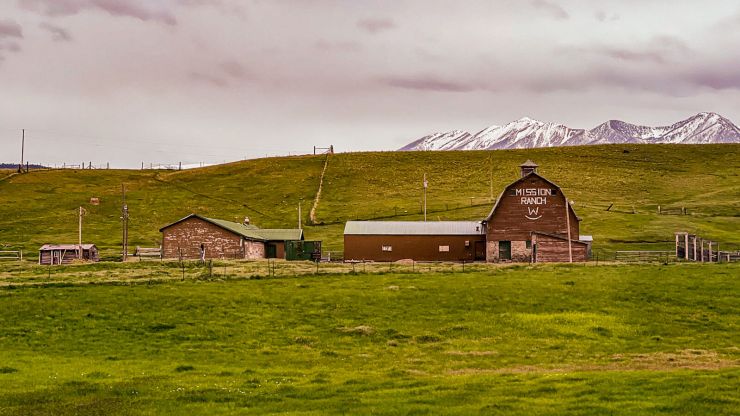On a recent trip from the Midwestern United States to the Palouse Region in Washington, I had the rare opportunity to be a passenger. We took our time and visited tourist attractions like Antique Archeology in LeClaire, IA, the World’s Largest Popcorn Ball in Sac City, IA, the Corn Palace in Mitchell, SD and of course the National Parks.
Why is this important? Well, for about 1,900 miles I had to sit still and observe!

I suffer from itchy shutter finger. I love to take pictures and document the scenery so others can experience it. Each day, I watched beautiful landscapes whiz by at speeds up to 80 mph! I had to do something!
Using Live Photos to capture scenery
I picked up my iPhone 13 Pro and began watching for interesting scenes to present themselves. I leave my camera setting on Live (Live starts recording 1.5 seconds before you press the shutter and 1.5 seconds after it is pressed). Live is the best way to photograph in a moving situation, if it is not turned on, the composition might be missed.

After capturing the image, I would take a look to see if it was what I wanted. If it was blurry, or the composition was off or crooked, I opened the Photos app and checked the live video and changed the key photo.
The next step was to open in Lightroom Mobile and fine tune the image. I prefer Lightroom Mobile to the Photos app because it gives me more control over the image adjustments. For example, I have access to the masking tools in Lightroom Mobile that the editor in Photos does not have.
When in Live editing you can scrub through the 3-second video to find your ideal Key Photo. In the first image, you can see that the cyclist ended up too far left in the image, by using Live, the composition is corrected by editing.

Photographing through windows
When photographing through the car windows there are things to consider:
- Bugs on the windshield: Your image will have blurry specks; have the driver run the windshield washer to clear a space for you.
- Rain: when the windows get wet, the camera will focus on the water drops.
- Window tint: The photos will have a bluish-green tint. Warm it up and decrease the saturation on blue, green and aqua, but not too much!
- Bumps in the road: Not exactly a window issue, but it can cause you to lose the composition, and fast!
Other than landscapes, watch for towns and roads with interesting names, like Opportunity, Home on the Range, and Hope. Capturing signs is even trickier!
Fortunately, in most cases, a “miles to sign” will show how far it is, then you might get lucky and have two or three exit signs that you can try to photograph.
Work within a theme
Make the experience interesting by choosing a theme, like trees, barns, silos or workers. By having a theme, you shift your focus from random objects to isolated scenes and it will hone your observation skills. You will discover other subjects to photograph while looking for something specific.
There are other reasons to photograph from the car:
- Rain can definitely be a deterrent to getting out of the car! Staying dry on a long trip is very important!
- Schedule: If you are running behind, or realize you are going to reach your destination later than you had planned, a quick stop is easier when you do not get out of the car and chances of getting distracted are minimized.
- Safety: If traveling alone, or find yourself in a situation that could pose danger, you may feel safer staying in the car. Never put yourself at risk just to get a photograph of something you think is interesting, it’s not worth it!

A final bonus of photographing from the car, Photos keeps track of the GPS location. At the end of your trip you can plot where you’ve been and take note of places that you might wish to revisit! The information is very helpful if you do photo books about your trip!

On your next trip, try photographing from the car, except if you are the driver! It is a great way to enhance your travel experience!
Editor’s note: We welcome this post from Pam DeCamp, an award-winning fine art photographer from southern Ohio. Her photography experience has ranged from photojournalism, sports, performing arts, fine art, to macro and wildlife. Travel photography is her passion and she enjoys planning trips with friends to various places across the country and internationally. She has traveled to all 50 states, 10 countries and three continents. Pam enjoys teaching and hosting workshops at her studio and in different cities. Visit her on her website or on Facebook for more information.





